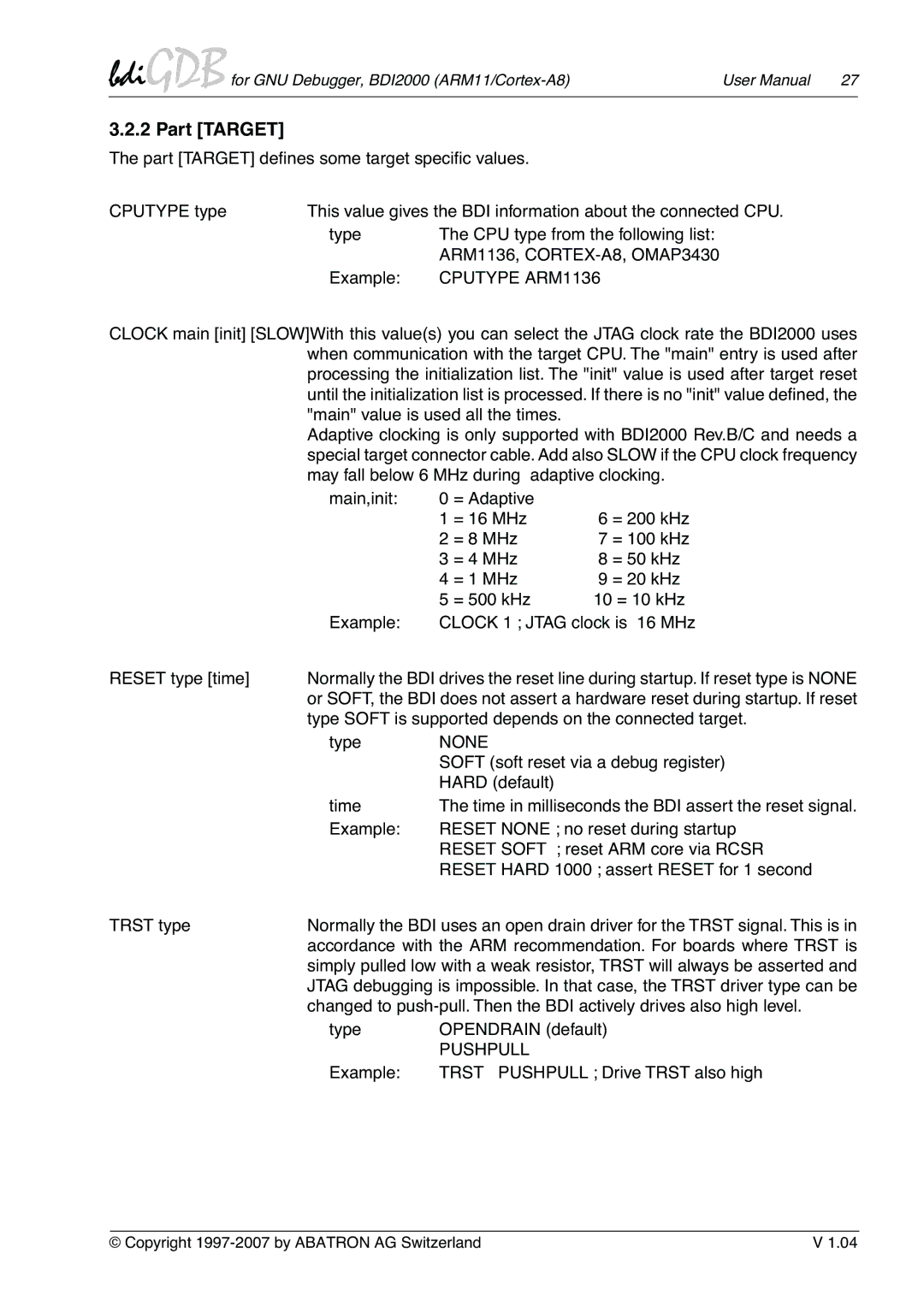
bdiGDB for GNU Debugger, BDI2000 | User Manual 27 |
3.2.2 Part [TARGET]
The part [TARGET] defines some target specific values.
CPUTYPE type | This value gives the BDI information about the connected CPU. | |
| type | The CPU type from the following list: |
|
| ARM1136, |
| Example: | CPUTYPE ARM1136 |
CLOCK main [init] [SLOW]With this value(s) you can select the JTAG clock rate the BDI2000 uses when communication with the target CPU. The "main" entry is used after processing the initialization list. The "init" value is used after target reset until the initialization list is processed. If there is no "init" value defined, the "main" value is used all the times.
Adaptive clocking is only supported with BDI2000 Rev.B/C and needs a special target connector cable. Add also SLOW if the CPU clock frequency may fall below 6 MHz during adaptive clocking.
main,init: | 0 = Adaptive |
|
| |
| 1 | = 16 MHz | 6 | = 200 kHz |
| 2 | = 8 MHz | 7 | = 100 kHz |
| 3 | = 4 MHz | 8 | = 50 kHz |
| 4 | = 1 MHz | 9 | = 20 kHz |
| 5 | = 500 kHz | 10 = 10 kHz | |
| Example: | CLOCK 1 ; JTAG clock is 16 MHz |
RESET type [time] | Normally the BDI drives the reset line during startup. If reset type is NONE | |
| or SOFT, the BDI does not assert a hardware reset during startup. If reset | |
| type SOFT is supported depends on the connected target. | |
| type | NONE |
|
| SOFT (soft reset via a debug register) |
|
| HARD (default) |
| time | The time in milliseconds the BDI assert the reset signal. |
| Example: | RESET NONE ; no reset during startup |
|
| RESET SOFT ; reset ARM core via RCSR |
|
| RESET HARD 1000 ; assert RESET for 1 second |
TRST type | Normally the BDI uses an open drain driver for the TRST signal. This is in | |
| accordance with the ARM recommendation. For boards where TRST is | |
| simply pulled low with a weak resistor, TRST will always be asserted and | |
| JTAG debugging is impossible. In that case, the TRST driver type can be | |
| changed to | |
| type | OPENDRAIN (default) |
|
| PUSHPULL |
| Example: | TRST PUSHPULL ; Drive TRST also high |
© Copyright | V 1.04 |
